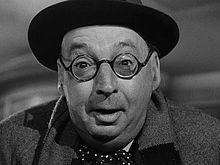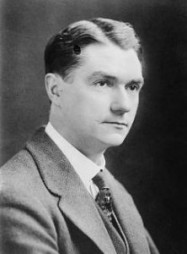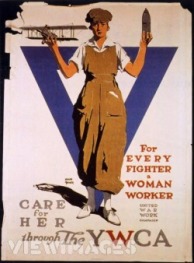Miles Malleson (1888-1969)
 One of the most well-known and recognizable British character actors of the last century, Malleson was also a prolific playwright and screenwriter. At the beginning of the First World War he was a private in a Territorial battalion at Malta. What he described as ‘some slight foot trouble’ invalided him home and out of the Army in January 1915. Black ‘Ell was published along with another play D’ Company in 1916 and performed at the Neighborhood Theatre in New York in April 1917. It was not given a performance license in the UK until 1926 when it was performed at the Little Theatre, Leeds, on 24th November. In the preface to the play Malleson wrote of his experiences in Malta:
One of the most well-known and recognizable British character actors of the last century, Malleson was also a prolific playwright and screenwriter. At the beginning of the First World War he was a private in a Territorial battalion at Malta. What he described as ‘some slight foot trouble’ invalided him home and out of the Army in January 1915. Black ‘Ell was published along with another play D’ Company in 1916 and performed at the Neighborhood Theatre in New York in April 1917. It was not given a performance license in the UK until 1926 when it was performed at the Little Theatre, Leeds, on 24th November. In the preface to the play Malleson wrote of his experiences in Malta:
I should like to add here that while those months were, I think the unhappiest I have lived through, I have the liveliest memories of much from my companions and friends of ‘D’ Company, for which I feel I can never be sufficiently grateful… Since then my view of this colossal catastrophe of the war has changed.
Black ‘Ell has been just recently written.
M.M. London, September, 1916
John Drinkwater (1882-1937)
 Drinkwater was an extraordinary artist. One of the six Dymock Poets along with Lascelles Abercrombie, Rupert Brooke, Robert Frost, Wilfred Gibson and Edward Thomas he was also a playwright, essayist, anthologist, actor, theatre producer and director. In addition to this he was co-founder and manager of Birmingham Repertory Theatre along with Barry Jackson. X=0 was first performed at The Rep in April 1917, the centrepiece of an evening of three one-act plays. The final play in that evening was a comedy written by Gilbert Cannan. X=0 was dedicated to Cannan, a dear friend of Drinkwater’s, a fellow playwright, conscientious objector, and member of the National Council Against Conscription. Drinkwater somehow managed to avoid conscription himself. However, he worked in a munitions factory and accompanied Lena Ashwell and her acting company out to the Front to perform for the troops. Fellow poet Rupert Brooke wrote Drinkwater a letter in January 1915 when he had joined up stating in accusatory tones: `The theatre’s no place [for a man] now. If you stay there you’ll not be able to start afresh with us when we all come back.’ It is believed that the attitude of others like Brooke and the reaction of the press to Drinkwater’s anti-war play had a negative effect on his career after the war.
Drinkwater was an extraordinary artist. One of the six Dymock Poets along with Lascelles Abercrombie, Rupert Brooke, Robert Frost, Wilfred Gibson and Edward Thomas he was also a playwright, essayist, anthologist, actor, theatre producer and director. In addition to this he was co-founder and manager of Birmingham Repertory Theatre along with Barry Jackson. X=0 was first performed at The Rep in April 1917, the centrepiece of an evening of three one-act plays. The final play in that evening was a comedy written by Gilbert Cannan. X=0 was dedicated to Cannan, a dear friend of Drinkwater’s, a fellow playwright, conscientious objector, and member of the National Council Against Conscription. Drinkwater somehow managed to avoid conscription himself. However, he worked in a munitions factory and accompanied Lena Ashwell and her acting company out to the Front to perform for the troops. Fellow poet Rupert Brooke wrote Drinkwater a letter in January 1915 when he had joined up stating in accusatory tones: `The theatre’s no place [for a man] now. If you stay there you’ll not be able to start afresh with us when we all come back.’ It is believed that the attitude of others like Brooke and the reaction of the press to Drinkwater’s anti-war play had a negative effect on his career after the war.
Aimee Byng Hall Scott (1868 – 1953) (pseudonym: Alec Holmes)
We know little about Aimee Byng Hall. She was born on 14 July 1868 in Murree, Punjab, Pakistan, the daughter of General C. H. Hall and wife of Major-General Sir Arthur Scott. A novelist, poet and playwright her other works include: The Open Prison (1936), Another Man’s Wife (1925), and The Sealed Envelope (1927). She was included in the Virago book of Women’s War Poetry and Verse for her poem July 1st, 1916 (see below). Despite her feminist outlook on life and possibly in deference to her family and class, she published her works under the pseudonym of Alec Holmes. The Munition Worker was only published in The Englishwoman magazine, Vol.33, March 1917, and there are no records of a performance of the play.
The play taps in to the spirit of suffrage with its determined central character striving for equality of sacrifice to the war effort. During the war the suffrage movement was split between those who wished to carry on the campaign for equality and adopt a pacifist stance and those who thought it best to shelve campaigning and put their energies into the war effort. The suffragettes played a large part in establishing safe and appropriate living and working conditions for the thousands of women who worked in the factories.
July 1st, 1916
A soft grey mist,
Poppies flamed brilliant where the woodlands bend
Or straggling in amongst the ripening corn,
Green grass dew kist;
While distantly a lark’s pure notes ascend,
Greeting the morn.
A shuddering night;
Flames, not of poppies, cleave the quivering air,
The corn is razed, the twisted trees are dead;
War in his might
Has passed; Nature lies prostrate there
Stunned by his tread.
Aimee Byng Hall Scott
